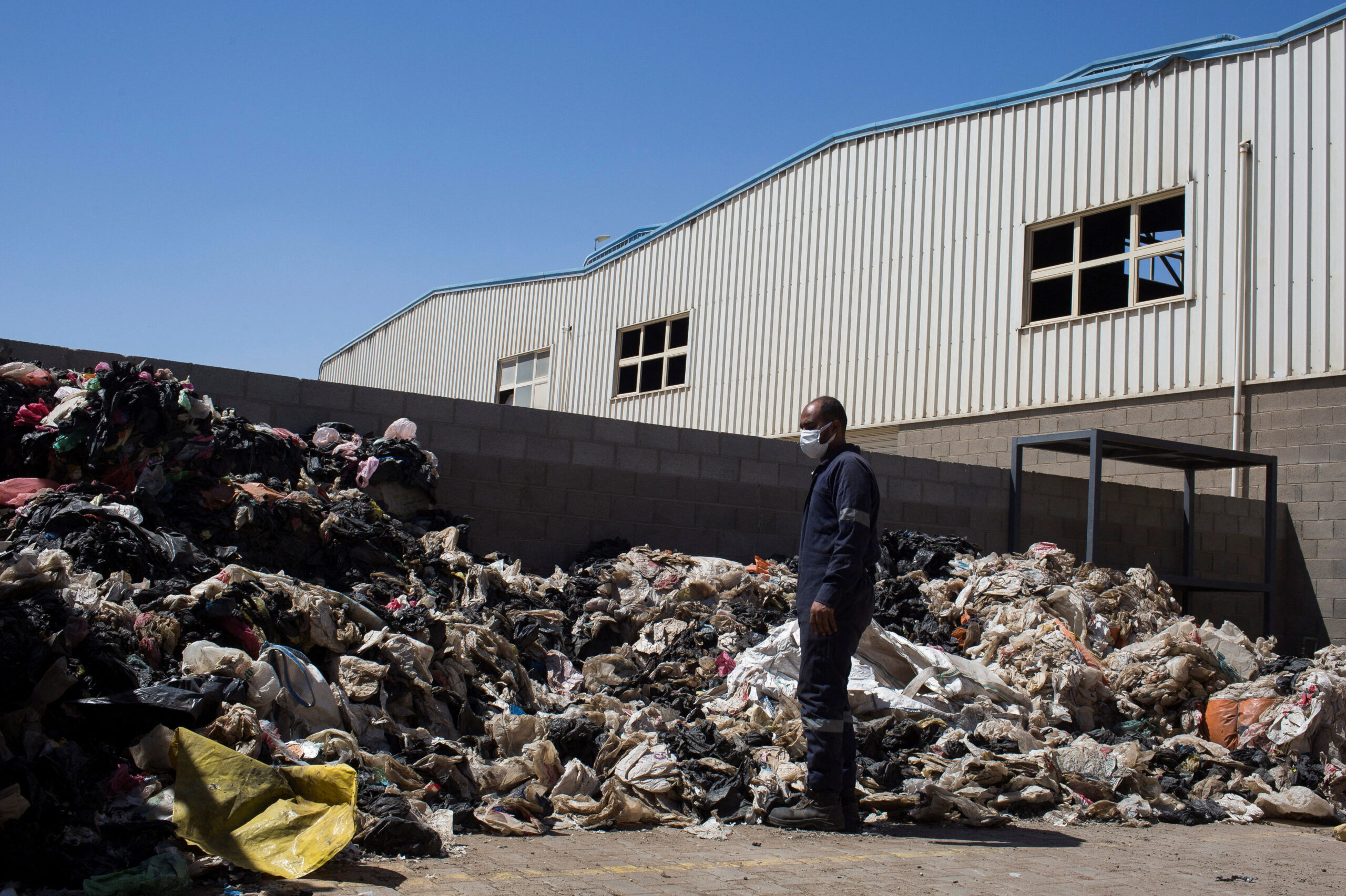On the outskirts of Cairo, an Egyptian start-up is turning discarded plastic into building materials. TileGreen, founded three years ago, aims to make Egypt’s construction industry more environmentally friendly by addressing the dual issues of plastic waste and high emissions from traditional cement.
“We developed a technology to convert various types of plastic waste, especially those with low value, into building materials,” said Khaled Raafat, co-founder and chief technology officer of TileGreen. “Our polymer aggregate composite combines plastic waste with natural aggregates like sand and gravel to create a concrete substitute. This composite can be used to make a range of products.”
The process involves mixing tiny shards of plastic with sand to form a material that is molded into tiles and other building components. TileGreen focuses on plastic waste typically discarded, such as single-use bags and food containers that are difficult to recycle.
Raafat noted that Egypt produces about 4.5 million tonnes of plastic waste annually, with each tile removing approximately 125 plastic bags from the environment. According to the “Black to Blue” initiative, Egypt contributes 43 percent of the plastic waste dumped in the Mediterranean Sea each year.
The construction sector is the largest emitter of greenhouse gases globally, making it crucial to reduce the carbon footprint associated with materials like cement, steel, and aluminum. Mohamed El Zayet, adjunct assistant professor of environmental engineering at The American University in Cairo, emphasized the environmental impact, noting that producing one kilogram of cement releases nearly one kilogram of CO2.
The construction and real estate sectors are vital to Egypt’s economy, representing nearly 19 percent of the country’s GDP in 2022, according to the Central Bank of Egypt. However, these sectors are also responsible for 23 percent of the country’s CO2 emissions. A 2016 report by the European Bank for Reconstruction and Development found that Egypt’s cement sector alone accounts for nearly 14 percent of emissions.
Two years ago, TileGreen provided interlocking tiles for SODIC, a prominent real estate developer, for a pathway outside its administrative complex. Ahmed El-Halawany, SODIC’s chief development officer, praised the collaboration for its technical, quality, and aesthetic benefits.
SODIC is exploring further projects with TileGreen, which claims its technology can produce over 40 types of products, including building bricks, floor tiles, and urban furniture.
El Zayet suggested that start-ups like TileGreen need incentives, such as tax breaks or financing support, to thrive and expand in Egypt. He also called for increased awareness among developers and designers about the availability of sustainable materials.
TileGreen is part of a growing number of Egyptian start-ups dedicated to sustainability and green innovation across various sectors.
Credit: Rédaction Africanews

